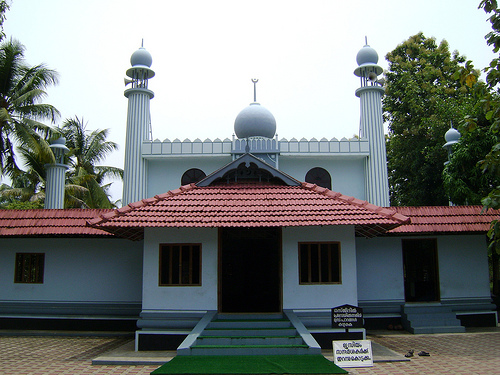Blog Archives
An interesting discussion with a young ISIS recruit…
By: Assim Luqman Al Hakeem
He is seventeen years old and eager to go and fight in Syria. When I tried to talk him out of it, he started calling me derogatory names! I said to him: we can call each other names from here till kingdom come. However, let’s discuss this in more civilized manner and put our guns, grenades and weapons on the table for moment. If you like what you hear, you follow the truth wherever it is. If you don’t like it, do what you want! The young man surprisingly agreed. Read the rest of this entry
How To Make Money – Ibn Khaldun and Taxes
Source: http://lostislamichistory.com/
The 40th president of the United States, Ronald Reagan famously stated in a piece in the New York Times in 1993,
“May I offer you the advice of the 14th century Arab historian Ibn Khaldun, who said: “At the beginning of the empire, the tax rates were low and the revenues were high. At the end of the empire, the tax rates were high and the revenues were low.”
And, no, I did not personally know Ibn Khaldun, although we may have had some friends in common!”1
Although one may agree or disagree with the conservative economic policies of Ronald Reagan, there is no denying the genius of the man he is quoting – Ibn Khaldun. He was centuries ahead of his time. His monumental work, the Muqaddimah, published in 1377, is hard to categorize. All at once it is a resource on history, Islam, science, sociology, economics, politics, warfare, and philosophy. One article on the entire book would be a disservice to Ibn Khaldun and the great amount of knowledge he left for subsequent generations. Instead, this article will focus only on some of his economic ideas, which centuries later form some of the basic ideas we use in government taxation today.
The Arab Revolt of World War One
Source: http://lostislamichistory.com/
No war has had as big an impact on the modern Middle East as the First World War, which lasted from 1914-1918. The war signaled the end of the Ottoman Empire, a major world power since the fifteenth century, and the final victory of Western European imperialism. In the aftermath of the war, almost the entire Muslim world was occupied by foreign forces, something that had never happened before, not during the Crusades, the Mongol invasion, or the Spanish Reconquista. One of the most important (and most debated) aspects of WWI was the revolt of the Arabs against the Ottoman Empire. Was this revolt a manifestation of overwhelming Arab resistance to the Turkish Ottoman Empire, or just a small band of warriors who did not represent Arab sentiment at large?






